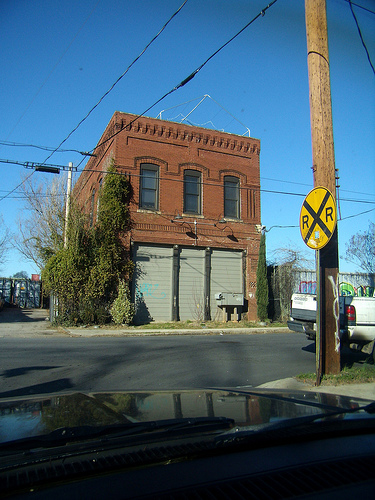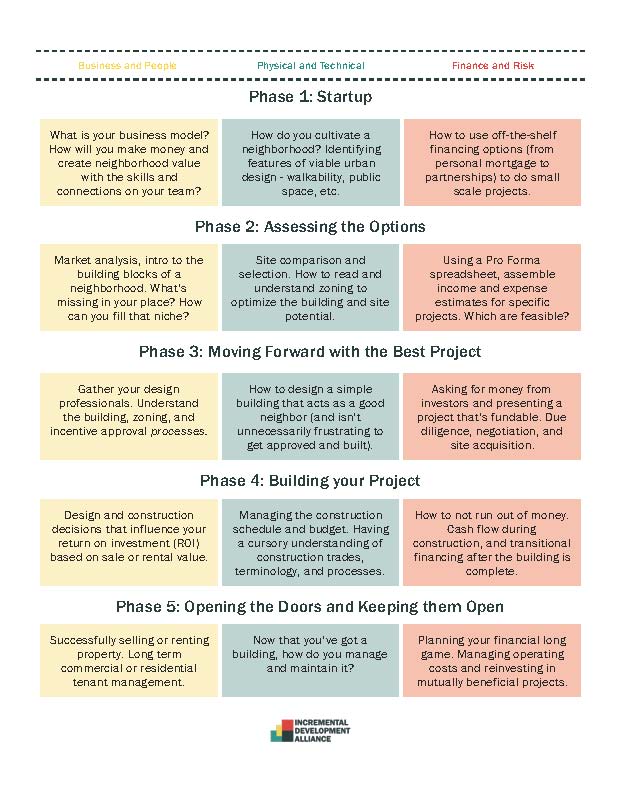P1000505
In most places the demand is large and the supply is pretty damned small. So just how large is the demand? If we were able to wave a wand and redirect the entire US housing industry to deliver only new rental housing in walkable urban places tomorrow, we would not catch up with the demand until 2050
If you understand urban places and have the ability to produce modest buildings for a living, I encourage you to figure out how to build apartment buildings and mixed use buildings, rent them out and and hold onto them. You should look for opportunities to do this in walkable or even marginally walkable places. Avoid completely car dependent locations so you don't have to build swimming pools nobody uses.
If you are a contractor, I think this might work out better than building for other people. If you are an Architect or urban designer I think this will work out better than performing fee for service design or consulting work.
If this seems like a crazy idea, please read Arthur C. Nelson's book Reshaping Metropolitan America and give it a a little more consideration.
http://www.islandpress.org/book/reshaping-metropolitan-america
Here is a link to Dr. Nelson's entire data set (in excel file format).
https://www.dropbox.com/s/3fzf8e8l89o1w0b/9781610910194_reshapeamericadatabase.xls?dl=0
Go ahead and download it and poke around. At a minimum, cruising through the spreadsheet will make you want to read the book, where Dr. Nelson very helpfully explains what all this data means. I suspect that if you are half as geeky about this stuff as I am, you will hone in on the place where you live to see what the housing future holds for a place you care about.
You can look up your Metropolitan Statistical Area (MSA) and find out what the annual demand for new rental apartments will be in your backyard. Then hop over to the US Census website to look at how many multifamily building permits were issued in your county in 2014 and 2015.
http://censtats.census.gov/bldg/bldgprmt.shtml
For example, I live in Albuquerque. In the Albuquerque/Bernalillo County MSA, the annual demand for new rental units, according to Dr. Nelson is 4,000 units. Imagine that a quarter of those units get delivered by the apartment fairy in the form of converted single family houses and the demand number comes down to 3,000 units.
In 2014 there were 400 units built in Bernalillo County, so the short fall of 2,600 would roll over into 2015. Add the conservative number of 3,000 units for 2015 and that comes to a demand for 5,600 new rental units. I check in on the permit activity for the City of Albuquerque and the number for the city (admittedly not the entire MSA) for 2015 was 570. So now the demand for 2016 is something over 8,000. Vacancy for apartments in Albuquerque over the last couple years has been less than 2% (--about what you would see when apartments need to be repainted and re-carpeted between tenants) Rents have gone up 5-10% a year in this market with the higher rents in the walkable parts of town.
Is your area any different? Do you see an opportunity?



 When I hear the question "How Do I get Started as a Developer?" it is usually followed by a string of questions which amount to "Can you draw me a map that will guide me through every detailed step to becoming a developer?"
When I hear the question "How Do I get Started as a Developer?" it is usually followed by a string of questions which amount to "Can you draw me a map that will guide me through every detailed step to becoming a developer?"